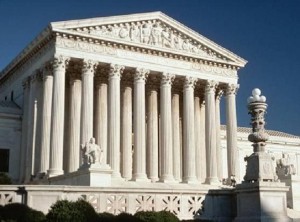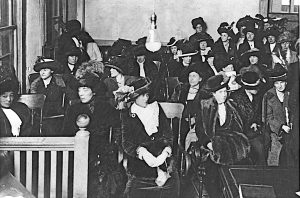Out of the Shadows: Peremptory Juror Strikes At Issue in Flowers v. Mississippi
 On June 20, 2019, the United States Supreme Court reversed the conviction of Curtis Flowers. The most recent appeal marks the sixth time that Mr. Flowers has been tried for charges arising from a quadruple homicide that occurred at the Tardy Furniture Store in Winona, Mississippi. Mr. Flowers has been incarcerated for over 20 years, as he awaits trial. Throughout this time, Mr. Flowers has consistently maintained his innocence. By way of background, Mr. Flowers is black. Douglas Evans, the prosecuting attorney of all six trials, is white.
On June 20, 2019, the United States Supreme Court reversed the conviction of Curtis Flowers. The most recent appeal marks the sixth time that Mr. Flowers has been tried for charges arising from a quadruple homicide that occurred at the Tardy Furniture Store in Winona, Mississippi. Mr. Flowers has been incarcerated for over 20 years, as he awaits trial. Throughout this time, Mr. Flowers has consistently maintained his innocence. By way of background, Mr. Flowers is black. Douglas Evans, the prosecuting attorney of all six trials, is white.
APM’s investigative podcast titled In the Dark conducted an in-depth analysis of the case. The podcast explores the nature of the circumstantial evidence that the prosecution relied upon. It scrutinizes the methodology of the investigating officers and explores alternative innocent interpretations of the evidence proffered. But, for the purpose of the appeal, sufficiency of evidence is not at issue. The narrator, Madeleine Baran, explains that “we’ve talked to hundreds of people who live in this part of Mississippi and it’s clear that the way people think about the Curtis Flowers case for the most part depends on whether they are white or black.” And it is the issue of race, which is at the heart of the appeal recently decided by the United States Supreme Court.


